Ira Sachs’ Love Is Strange comes to us with a 97 percent approval rating — 75 positive reviews vs. a measly two negative ones — and this beautiful film deserves that kind of accolade. What astonishes me is that so few of the reviews I’ve encountered recognize that this little gem of a movie is essentially a variation on Leo McCarey’s classic Make Way for Tomorrow (1937) in modern terms and with an aging gay couple — and a dollop of autobiography. The basic trajectory of the film — elderly couple loses their home, and none of their family or friends can accommodate them both — is the same. Even some of the specifics are virtually interchangeable — right down to the couple’s night on the town and their parting when one gets on a train (a subway in this case). I point this out not to denigrate Sachs’ film, which is one of the most beautiful movies I’ve seen this year, but to put it in a larger context that makes the accomplishment — and its differences — even greater.
The film tells the story of Ben (John Lithgow) and George (Alfred Molina), who after nearly 40 years together get married when New York law recognizes same-sex marriages. What they haven’t reckoned on is that the Catholic diocese that had previously turned a blind eye to their relationship no longer does so once they’re legally married — considering this a violation of George’s contract as the music teacher at the school that had long employed him. As a result, George finds himself without a job, and the two of them with insufficient means to make the payments on their apartment. Their plans for using the profits from its sale come to nothing when they learn that various commissions and fine print details don’t leave them with all that much to work with. Worse, the only member of their family — real and extended — who can take both of them lives in Poughkeepsie, which is too far from George’s private music lessons, especially for two New Yorkers who don’t drive. The upshot is that Ben goes to live with his nephew, Elliot (Darren E. Burrows), his wife, Kate (Marissa Tomei), and their son, Joey (Charlie Tahan), whose bottom bunk Ben inherits. George, on the other hand, ends up on the sofa of their gay friends (Cheyenne Jackson and Manny Perez), who are a hard partying, Dungeons and Dragons playing, generally loud pair of cops. The situation is far from ideal.
What makes the film work so beautifully is its simple humanity. Though the film is obviously not in favor of the Church’s stance on the marriage — or the basic hypocrisy underlying it — this is not a militant gay rights work. In fact, Ben and George are casually accepted by everyone in the film — apart from the diocese powers that be — and while their sexuality is certainly central to the story and their characters, it’s not the issue. The issue is the universal tragedy of the combination of old age and a lack of money — something just about everyone can relate to one way or another. At the same time, Love Is Strange isn’t without a bitter irony. Most romances work toward a “happy ending” with a wedding. This one opens with that supposed happy ending, which proves to be anything but happy.
Casting plays a tremendous part in the movie’s success. I cannot imagine better actors than Lithgow and Molina for these roles. There isn’t a false moment between them. We immediately accept them as an old, established couple — something that’s even more incredible when you realize how little screen time they actually share. However, when they do appear together — especially the scene at the bar with its discussion of Lithgow’s history of infidelity, and the one that follows it outside the subway entrance — they are positively magical in their reality of being Ben and George. It’s a pity that the film is almost certainly too small to capture Oscar attention for them.
But in many ways, this is a director’s film — no matter how subtle the directorial style may be. Love Is Strange is Sachs’ sixth feature — and the first to play locally — and it’s the work of man who has mastered the art of film. His camera may do nothing all that adventurous, but it always looks at just the right things for just the right length of screen time. The shot outside the subway entrance — one lengthy long-shot, perfectly composed and set to a Chopin nocturne — is probably the most beautiful thing I’ve seen in a movie all year. (His overall use of a primarily Chopin soundtrack is a terrific blend of music and image.) It is this — and a hundred other finely crafted moments, as well as a good sense of the value of ambiguity — that makes Love Is Strange something of a masterpiece. See it. Rated R for language.
Playing at Carolina Cinemas.



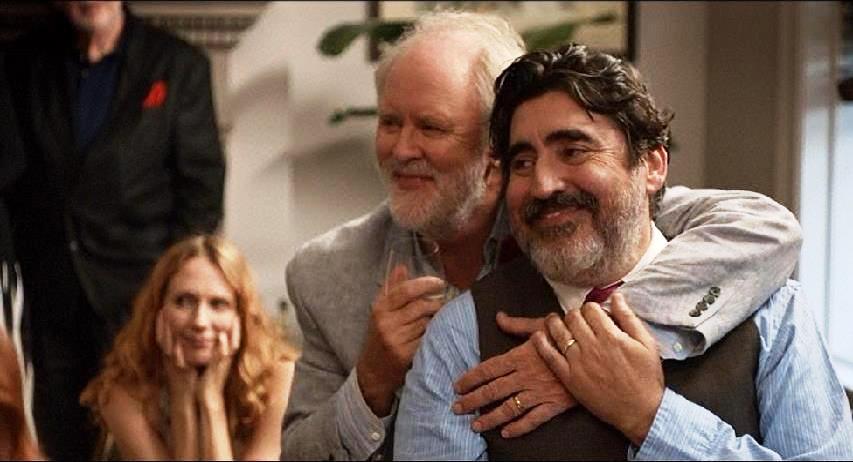
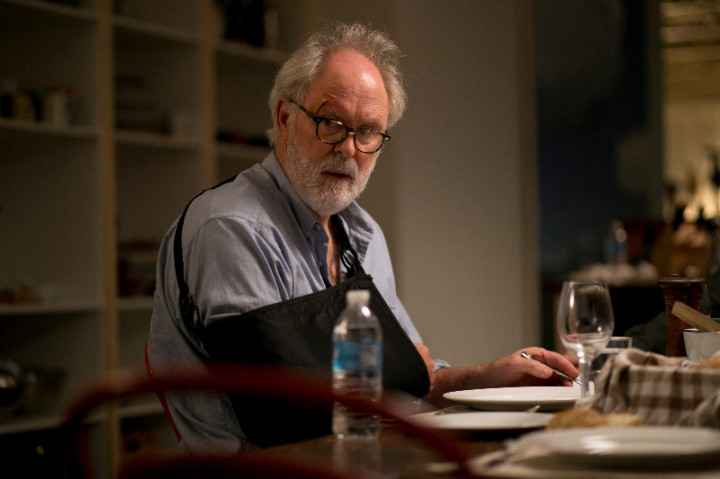
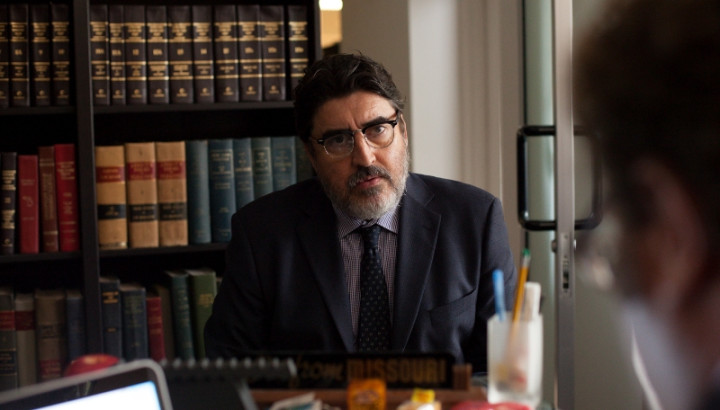
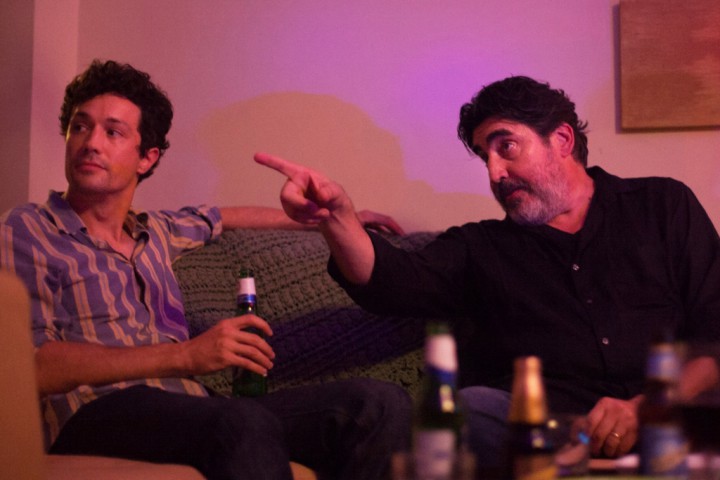
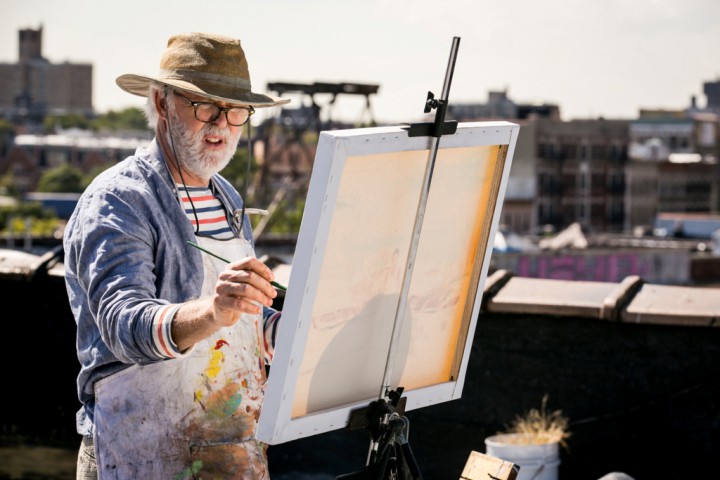
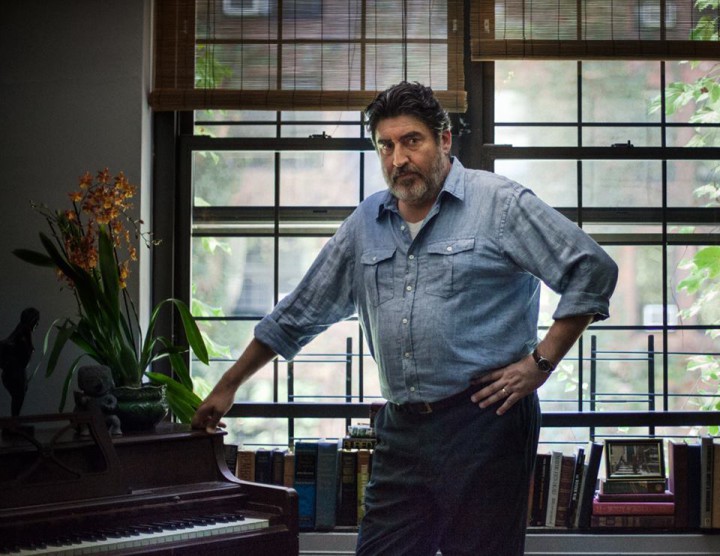
Wow. Thank you for your review. Without it we might have missed this one (and we just ordered “Make Way For Tomorrow” via Netflix).
Happy to have helped. I think you’ll like Make Way for Tomorrow.
Well this was just lovely. It hit every right beat.
Any word on how this did around here?
It did pretty good at Fine Arts and okay at The Carolina. I’d expect another week out of it, maybe two. Maybe.
Lovely lovely film. Thank you for the recommendation.
Glad you liked it.
Do you believe that only now, one year after its release, was I able to watch this film here in Brazil? It was worth the wait, at least! ^^
Well, at least you saw it! And it’s very nice to see you around here!!
Thanks! I have already started recommending this gem to everyone I know! ^^